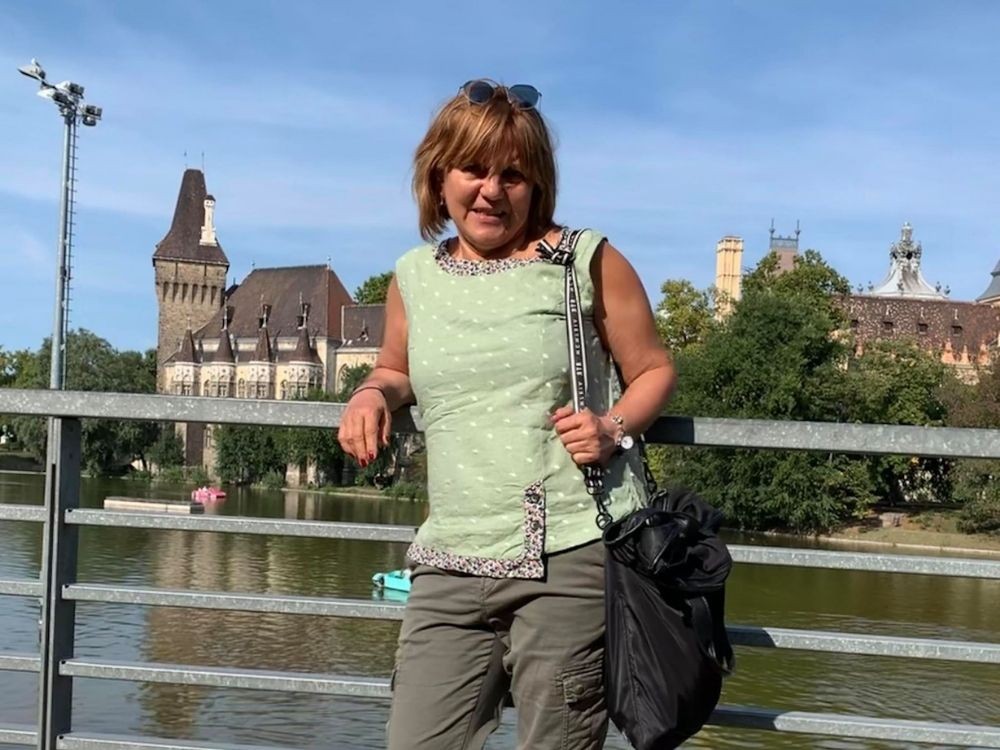Svetla Kyoseva arrived in Hungary in 1984 and started working at the Bulgarian School “Hristo Botev”, where she spent 13 years. There she found out how different it was to work with children who grow up in a foreign language environment and how important it was for them not to remain isolated. In 2004, when the Bulgarian school for the native language was founded, her former students, who are prominent figures in the Bulgarian community in Hungary, entrusted the school’s management to her. For 15 years she remained principal of the private Bulgarian school in Hungary:
"The school is very active, not only in the educational sphere, but also in the cultural one, maintaining contacts with the schools of other communities,” Svetla Kyoseva has told Radio Bulgaria. “Children participate in various competitions and festivals. This is very motivating for them. As a former teacher and principal at this school, but also as a grandmother of two grandchildren, I can say that children go to the school with great pleasure and interest.”
According to Svetla Kyoseva, it is very important that Bulgarian children who grow up abroad do not lose connection with their homeland, but at the same time they should fit into the environment in which they live:
"The boundaries have been blurred," she says. “However, I think that every person, in order to be well-positioned in the global world, must have deep roots. They may have a good profession and career anywhere in the world, but what was rooted in them in childhood remains part of them. Any attempt to give up the native, the national, leads to the mutilation of the personality. There are expressions, words, verses, music that speak to me much more than to other people. If I somehow manage to pass this on to others, it will enrich them as well. Of course, I get acquainted with other cultures with pleasure, with open eyes and ears, with all the senses, and I love them. That doesn't make me less Bulgarian.“

Svetla Kyoseva is the editor-in-chief of the bilingual magazine for culture and social life "Hemus", founded in Hungary exactly 30 years ago. She is also a translator of contemporary Hungarian poetry and prose and editor of a radio program in Bulgarian aired by the Hungarian Radio. Asked about the place of printed cultural magazines in recent years, Svetla Kyoseva says:

"Personally, I think that the paper magazines and books have their own place. There are people who prefer to hold the magazine in their hands and enjoy its appearance, but we must not forget the people who prefer to receive information from the Internet. Our magazine has been uploaded on the website of the Bulgarian community in Hungary since 2011. Its pages contain many valuable and interesting articles, not only about the Bulgarian community in Hungary. So, I think all possible forms are good. We have an idea to present both Bulgarian and Hungarian authors in order for Hemus to become a real meeting place between the two literary traditions. According to me, this could strengthen the role of our magazine as a bridge between the two cultures.”
English: Alexander Markov
Photos: Facebook /Svetla Kyoseva, bolgarok.huThe film "Gundi: Legend of Love" caused a sensation across the Ocean. Screenings of the film story about the life of legendary football player Georgi Asparuhov – Gundi were held in Los Angeles and Las Vegas as the halls were full...
On this day 35 years ago, the authoritarian regime of communist dictator Todor Zhivkov collapsed. To mark the anniversary, the BGNES news agency carried out a survey of monuments to totalitarianism. The agency checked whether the monuments of the..
Residents and guests of the village of Kolena, Stara Zagora Municipality, gather for the Young Wine Festival. The event was celebrated for the first time in 2017, and a few years later the local teacher and winemaker Martin Slavov gave the..

+359 2 9336 661
